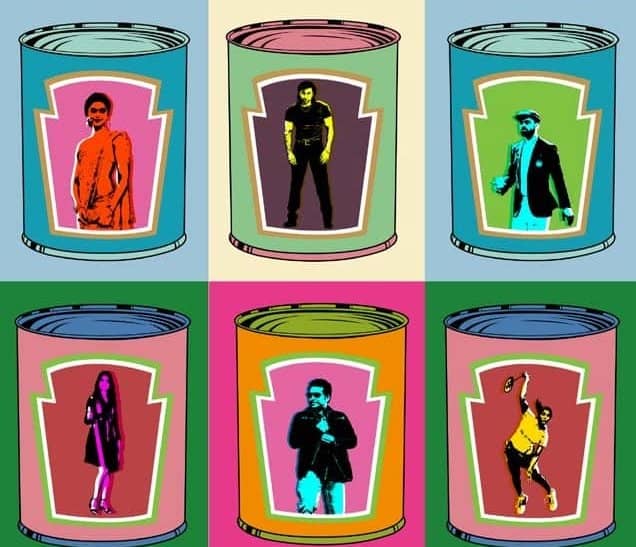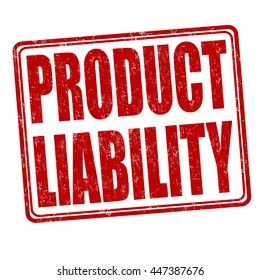Celebrity Endorsement and Consumer Protection Act, 2019 - an Analysis

The Consumer Protection Act, 2019 finds its relevance from the Government of India enacting the first Consumer Protection Act in 1986 with the emerging concern to safeguard the interests of the consumer and redress their complaints and disputes. In light of consumers consuming varied commodities & services with the emergence of the new world of Globalization, Liberalization, and Privatization in the late 1980’s it was found necessary to enact a law that would protect their rights as consumers ( Caveat Emptor) and would make the seller responsible towards its buyers (Caveat Venditor). However, with the coming of the 21st century & advanced recourse of globalization, different consumers have faced grave levels of issues such as unfair trade practices, unfair unilateral contracts, and so on. As a response to this, the G.O.I found it an utmost urgency to meet these growing difficulties and hence enacted the Consumer Protection Act, 2019 to meet the best interest of the consumers. The core objective behind this new legislation remains alike for the protection of consumers thereby making several new additions such as advertising claims and endorsement claims in inclusion to e-commerce.
CONSUMER PROTECTION ACT, 2019 – AN ANALYSIS

The Consumer Protection Act, 2019 is welfare legislation aiming at expanding the scope for the consumers to get their grievances addressed such as a central regulator, strict penalties for misleading advertisements, and inclusion of E-consumers under the ambit of the definition of consumer and a new set of E-Commerce Guidelines as well.
Structure
|
District Forum |
State Commission |
National Commission |
|
President 2 Members |
President 4 Members |
President 4 Members |
Changes highlighted in the new Act -
- Previously, the complainant consumers were required to file the complaint in the area where the opposite party or the seller or manufacturer resides or carries out his business. With the coming of this new Act, it allows the aggrieved consumer to file their complaint in the forum where he resides.
- The scope of defining a consumer under this Act has expanded to sweep under its cover the E-Consumers thereby meeting the subject matter of E-Commerce under its canopy
- Earlier the District Consumer Forum used to entertain matters up to 20 lacs, currently, they can hear cases up to 1 crore. The State Consumer Forum which now after 2019 can hear cases up to 10 crores, earlier heard cases that were less than one crore. Any case beyond 10 crores is heard by the National Consumer Disputes Redressal Commission.
- The previous Act instructed the commissions to either accept or reject a complaint within twenty-one days of receiving it. The New Act has moved a step ahead and inculcated that if no action is taken within twenty-one days of receiving it, the complaint is assumed to be admitted.
- The Previous Act didn’t give the power for the Commission to have Judicial Review, however, the new legislation provides the Commission with the power of reviewing their own issued orders.
The practicality of Consumer Courts or the Loopholes after the enactment of the 2019 Act- The act provides primarily the two types of jurisdictions- the Territorial Jurisdiction and the Pecuniary Jurisdiction, which has undergone drastic alteration with the new legislation as highlighted above previously. No doubt, this legislation has been a boon to all the consumers, however, the practical scenario in India today in terms of consumer protection still happens to be vulnerable and ineffective since the implementation of all other necessary components remains stagnant. Some of the ineffectiveness that is seen today in Practical scenarios is as follows-
- There is a lack of proper infrastructure with all necessary Technological equipment in remote district redressal forums which results in ineffective registration of complaints and carrying out of redressal process.
- The Pecuniary Limit altered in the new legislation for the NCDRC to entertain a case has taken the shape of a barrier now since the pecuniary jurisdiction for the National Commission to entertain a case is now Rs-10 crore. Many home buyers have complained that the direct way of approaching NCDRC has become a distant process since now the complaints have to go through several layers of the judicial process that will lead to incremental litigation costs if one complainant consumer is not satisfied with the decision forwarded by a subordinate forum.
- The District Level Consumer Forums has serious issues of members taking excessive leaves thereby increasing the pending of cases that affect the very core objective of the formation of the new legislation.
Critical Comment - The New Legislation is primarily known to be a boon for the e-consumers in contrast to the previous legislation, however; it still lacks effectiveness to a large extent. The lack of Cyberlaw skills among the law enforcement agencies has resulted in cyber frauds through the medium of e-commerce as the new consumer act has not been implemented uniformly and effectively yet. The consumers lack knowledge regarding the new clauses and provisions that are been made available to them through the medium of e-commerce guidelines due to lack of technological awareness and lack of legal aspects on consumer protection. The government here along with the commissions and forums plays a big role in making it possible that it reaches almost each one of us so that no consumer falls into the trap of the gigantic e-commerce frauds. The aspect of ‘advertisement’ that is been made under this new act is not an effective measure to combat the growing punishable soft porn publication that is ignored by law enforcement agencies. The new act fails to meet the well-framed legal requirements to start an e-commerce website and business in India. Also, it is in the hands of the consumers to identify if the products are of deficient quality while purchasing them online there are no such agencies that are prescribed which will try to identify and investigate with the seller who will publish the same in the online platform right before it reaches the consumers at large. The legal penalties and liabilities are not taken seriously by the e-commerce sectors and that the number of fraudulent cases of the consumers online tends to grow at a faster pace as the new consumer protection law and other effective electronic emphasized laws fail to deter such matters. India has traveled a long way on its Internet superhighway. The need and establishment of a separate act addressing the online consumers is a good enough initiative on the part of the government but its effectiveness will only be tested when the consumers along with the business operators will comply accordingly with the act and its guidelines.
CONSUMERIST DESIRE: ASCI GUIDELINES ON CELEBRITY ADVERTISING

Advertisements in simple terms are a way of tricking consumers thereby raising the desire for them to purchase a certain product. Such influencing advertisements incite consumers into purchasing products that might depict something that is untrue about the product. The Advertising Standards Council of India (ASCI) in 2017 have issued guidelines on Celebrity Endorsing Advertisements whose preamble highlights the key motive for guiding the Advertisers in producing and releasing appropriate advertisements endorsed by celebrities. Some of the vital guidelines are as follows –
- Products endorsed by Celebrities should be honestly represented.
- Testimonials, endorsements, or opinions in advertisements must reflect the genuine and current opinions of the individuals endorsing an advertisement.
- No endorsement of products, treatment, or remedy, which are prohibited under the Drugs & Magic Remedies and the Drugs & Cosmetics Act.
- Celebrities should take due diligence in ensuring that the descriptions claimed by the advertisements are not misleading and check indiscriminate endorsements.
Some Interesting Cases Discussed on Celebrity Endorsement
- Hero Xtreme 200r Case[1]– In 2019, various complaints were filed against the TV commercial of ‘Hero Xtreme 200r’ motorbike by Hero MotoCorp featuring Virat Kohli endorsing their new bicycle arrangement. The Advertisement endorsed is shown riding the bike dangerously thereby ridiculing traffic rules. The Consumer Complaints Council (CCC) upheld the complaints and stated that the TV Commercial depicted violation of traffic rules and dismissal of road safety that contravened clauses (a), (b), and (c) of the ASCI Guidelines. The advertisers were asked to revise their TV commercials.
- Frankfinn Aviation Services Pvt. Ltd Case [2]– A complaint was filed against the Frankfinn Aviation Service Pvt. Ltd for their TV commercial endorsed by Alia Bhatt claiming themselves to be the “ World’s No.1 Airhostess Training Institute”. The CCC upheld that the Advertisers could not provide verified comparative data to prove its quality training or through third-party validation. The Council found the advertisement misleading likely to widespread disappointment in the minds of consumers & held it violating clauses (c) & (d) of the ASCI Guidelines.
- Lenskart Blue Smartphone Lenses Case [3] – Complaint was filed against Lenskart.com for its advertisement endorsed by Katrina Kaif claimed that their new blue smartphone lenses were effective above all other lenses in protecting eyes from smartphone harmful blue lights. The CCC stated that such a claim was not substantiated by reliable evidence nor any comparative data to prove the same. The CCC also upheld that Katrina Kaif urging customers to visit Lenskart and get Lenskart Blue demo was likely to mislead consumers.
- Dhathri Hair Oil Case [4]- Francis Vadakkan filed a Complaint before the consumer court in Kerala (CC.345/12) against the manufacturers of Dhathri Hair Cream and Film Actor Anoop Menon who endorsed the product in an advertisement claiming that the use of the product for six weeks ensures lust hair growth. Francis used the cream but had no improvement and was humiliated by his friends and relatives. The District Consumer Redressal Forum, Thrissur, found that the manufacturer could not deliver the result claimed by the product. Further, that the precautions mentioned in the brochure is print in such a way that it is not even visible through a magnifying class. The forum also stated that the media and newspaper have forgotten their journalistic duties to become only publishers of advertisements. The Forum directed Anoop Menon to indulge in future ads only after making the product’s credibility and directed the actor and company to pay a compensation of Rs.10,000 each and medicals selling the product to pay a fine of Rs.3,000.
- Recently, In Horlicks Ltd. v. Zydus Wellness Products Ltd[5], the Delhi HC passed an interim order restraining Zydus from telecasting its advertisement comparing Complan to Horlicks on grounds that the same was misleading.
- In Pepsi Co.case[6], it was held by Delhi HC that certain factors had to be kept in mind while deciding the question of mocking such as the intention of the commercial, manner of the commercial, and storyline of the commercial and the message sought to be covered.
PRODUCT LIABILITY

Product liability is the responsibility of the product manufacturers and sellers to compensate for any harm that has occurred due to the use of their manufactured and sold product by the consumer. Here comes the picture of Caveat Venditor which means to make the manufacturer or seller be responsible towards its buyers. The Consumer Protection Act, 2019 considers this principle maxim and provides increasing liability provisions. Chapter VI (Section 82-87) of the new Act speaks on Product Liability. Following are the few liabilities of product manufacturers-
A Product manufacturer shall be held liable if –
- The product has a manufacturing defect and is overall defective in its design.
- There is deviance from manufacturing specifications.
- The product does not express a warranty and fails to have adequate instructions for its accurate use to prevent any harm or any warning. [7]
The liabilities of a seller under section 86 of the new Act that holds a product seller liable if –
- He has substantial control over the testing, packaging, or labelling of a product that caused harm
- Changed or modified the product,
- If he has made an express warranty of a product independent of any warranty made by a manufacturer and the product fails to confirm the same. [8]
Previously in 1986, the product sellers were not held liable since they didn’t exercise direct control in the manufacturing a product but the new legislation takes this into consideration and has made sellers liable. The new legislation also holds the product service providers liable under section 85 where he can be held liable if the service provided was faulty in quality or if there, was an act of negligence or omission that has caused harm and didn’t issue any warning instruction or not confirm any express warranty. [9] However, sec.87 talks on certain exceptions in case the product was misused during the time of harm or there was an absolute failure from the part of investigation office supervision of the manufactured product or if the product is used under the influence of alcohol. [10]
Unfair Contract and Unfair Trade Practice -
With the growing competition in the world of Globalization and the Standard forms of Contracts for different business purposes thereby restricting liability under contracts, there is a rise in the number of Unfair Contracts and Trade Practices. Such unfairness such as an excessive security deposit for the performance of a contractual obligation, imposition of disproportionate penalties on consumer such as in terms of the loan and insurance policy rates, refusing of early repayment of debts, unilateral termination of contract has turned the entire consumer world vague and harsh.
CONCLUSION
In conclusion, it is important for us to understand that laws would remain in words unless sellers or we the consumers do not bind ourselves within the scope of the law effectively respecting the core objective of the legislation. There is often very blurry vision when it comes to the practicality of laws, especially in India. Therefore, mass awareness of the new technological law advancements including the adaption of new consumer act that covers matters related to e-commerce should be spread. The inclusion of the new Consumer Protection Act in the curriculum of not only law courses but also in streams of students pursuing business and commerce, including computer business management should be made. Such small steps would ensure a country that would effectively prosper in terms of both business and consumer trust.
[1]Devesh Mishra, Virat Kohli’s Hero Xtreme 200R Ad encourages unsafe riding: ASCI, CARTOQ (March 4, 2019, 1:05 PM), https://www.cartoq.com/virat-kohlis-hero-xtreme-200r-ad/.
[2]Exchange4Media Staff, ASCI upholds complaints against ads by Bharti Airtel, Frankfinn Aviation Services and more, EXCHANGE4MEDIA (June 6, 2017, 8:13 AM), https://www.exchange4media.com/advertising-news/asci-upholds-complaints-against-ads-by-bharti-airtelfrankfinn-aviation-services-and-more-69117.html.
[3] Money Life Digital Team, ASCI bans 344 ads including Hero MotoCorp, Sensodyne, Lenskart, Rasna, in October & November 2018, MONEYLIFE ( March 2, 2019, 5:07 PM), https://www.moneylife.in/article/asci-bans-344-ads-including-republic-tv-hero-motocorp-blenders-pride-pg-loreal-india-head-and-shoulders-hul-ponds-sensodyne-lenskart-rasna-dabur-goodknight-patches-in-october-and-november-2018/56506.html.
[4]LiveLaw News Network, No Hair Growth As Promised In Advertisement : Consumer Court Penalizes Brand Ambassador For False Claim, LIVELAW ( Jan 4, 2021, 10:21 PM) https://www.livelaw.in/news-updates/consumer-court-false-advertisement-penalizes-brand-ambassador-celebrity-endorsement-167929.
[5]Horlicks Ltd. v. Zydus Wellness Products Ltd , (2020) SCC OnLine Del 873.
[6] Pepsi Co. Inc. v. Hindustan Coca Cola Ltd., 2003 SCC OnLine Del 802.
[7] The Consumer Protection Act, 2019, sec.84.
[8] The Consumer Protection Act, 2019, sec 86.
[9] The Consumer Protection Act, 2019, sec 85.
[10] The Consumer Protection Act, 2019, sec 87.

Comments ()